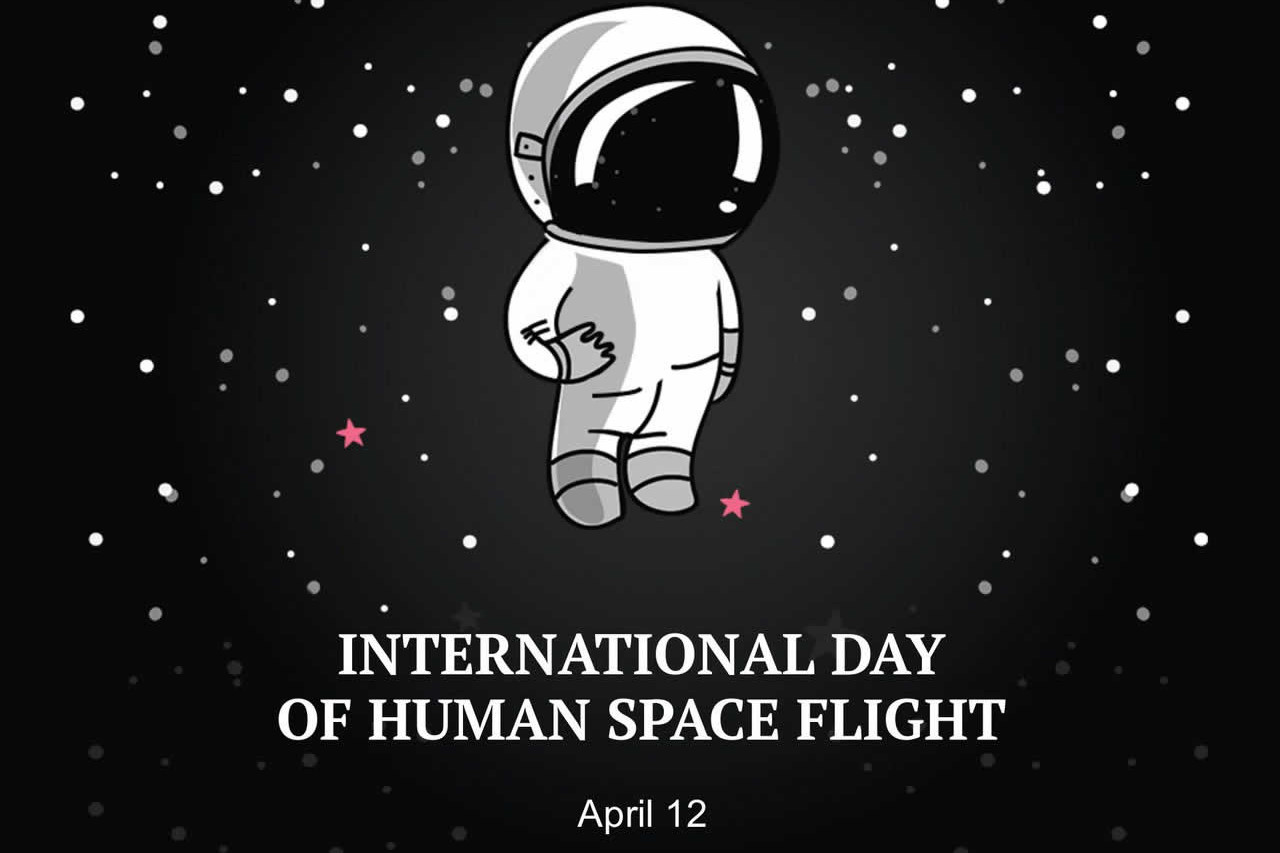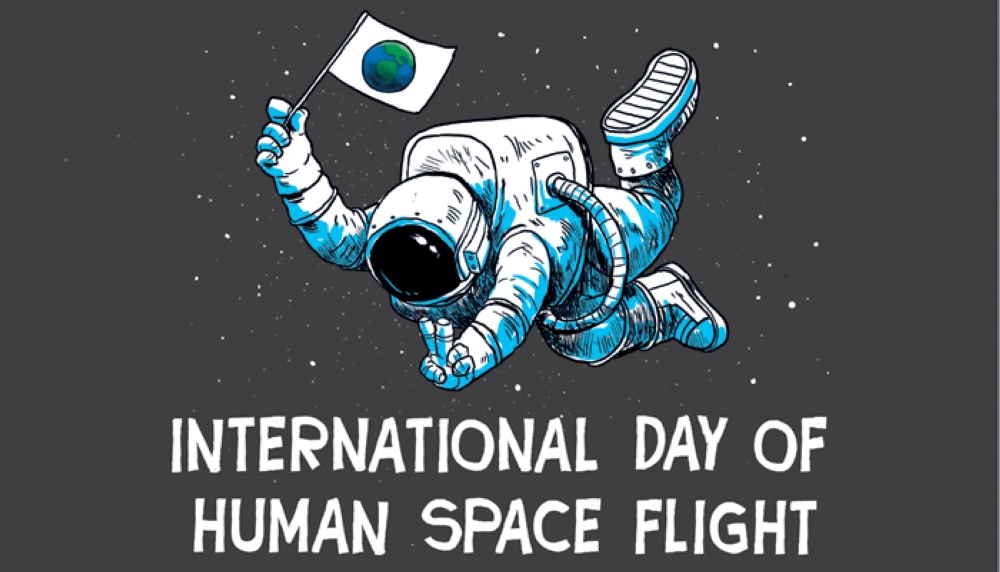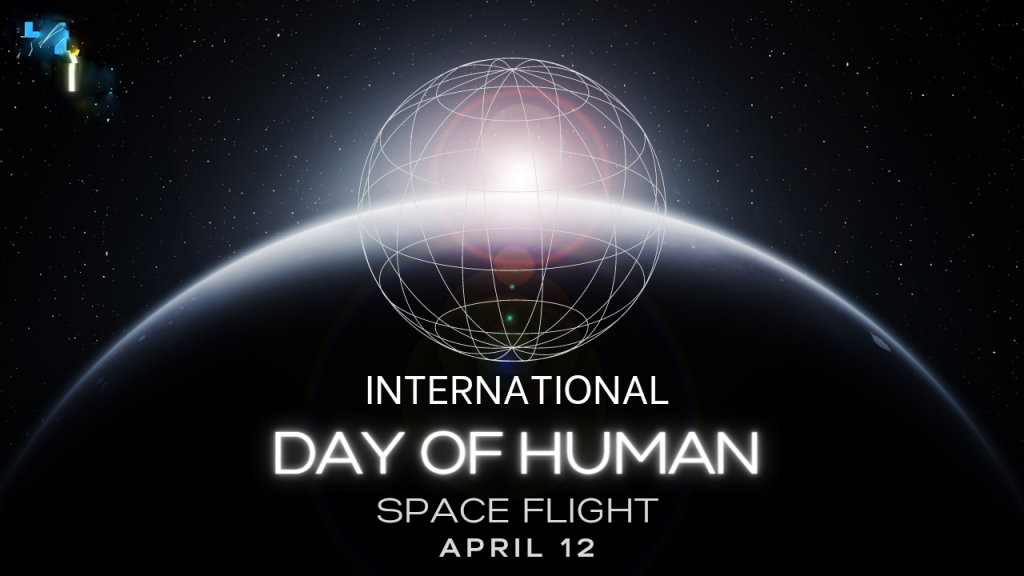
This is a “special day celebrating our journey into outer space”—officially named by the United Nations as International Day of Human Spaceflight! Just hearing its name makes you realize this day is extraordinary—it’s all about reaching for the stars!
Why was this date chosen? The reason is truly thrilling! It commemorates an incredible act of bravery that ushered humanity into a new era. Let’s travel back to April 12th, 1961. On this historic day, Soviet Air Force pilot Yuri Gagarin boarded his spacecraft “Vostok 1” at Baikonur Cosmodrome and “zoomed” off into distant outer space!
Imagine it—this was humanity’s first venture beyond Earth’s embrace! Gagarin orbited our blue planet at an altitude reaching up to 301 kilometers. He spent a total of 1 hour and 48 minutes in orbit—a perspective no human had ever seen before. That view must have been awe-inspiring! And then he safely returned home. This marked history’s first successful manned mission into outer space.
Gagarin’s flight was monumental—not just for Soviet Russia but for all humankind as it marked the dawn of our entry into outer-space exploration. From then on out—space wasn’t merely something astronomers studied or sci-fi writers imagined—it became humanity’s “new frontier” ripe for exploration.

The United Nations recognized this feat wasn’t merely nationalistic pride but belonged collectively to human courage & wisdom worldwide. Moreover—space tech & exploration impact every facet within earthly life increasingly so today. Hence—on April 7th in 2011—the UN General Assembly passed resolution designating annually April-12th as “International Day Of Human Spaceflight.”
The primary goal behind establishing such commemoration—is celebrating “humanity’s entry into cosmic era,” honoring brave pioneers like Gagarin along with countless scientists/engineers/astronauts striving toward dreams about exploring cosmoses while reminding everyone how vital spatial sciences/technologies are towards sustainable developments here upon earth itself too: think GPS navigation/weather forecasting/TV signals/international communications/environmental monitoring/disaster warnings/crop yield estimations—all reliant upon spatial tech enhancing national & public welfare making lives easier safer altogether.
Additionally—through observing such occasion—the UN aims reaffirming global consensus ensuring peaceful utilization outer-spaces avoiding militarization transforming instead collaborative realm benefiting mankind universally.
From Gagarin till now [2025]—64 years span long glorious journey indeed: On April-12th-2021—the UN hosted online celebration marking significant milestone honoring first manned mission six decades prior.
Annually each-April-12th worldwide diverse celebratory events unfold: Space agencies host open days/museums exhibit astronautical themes/schools conduct educational programs regarding astronomy & spacetravel/astronauts share personal stories/media revisits historical milestones introducing upcoming explorations—people collectively gaze skywards feeling adventurous romantic spirits pondering future possibilities within cosmoses themselves.

Thus every-April-12th aka International-Day-of-Human-Spaceflight isn’t solely memorializing historic ventures rather celebrating indomitable spirits daring explore uncharted realms challenging boundaries reminding everyone spatial technologies intertwine daily lives emphasizing peaceful cooperative utilizations benefiting entire humankind overall—a global observance encapsulating courage/exploration/technology/cooperation/universal futures ahead altogether next-time around glance upwards reflecting pioneering spirits technological advancements envisioning limitless potentials awaiting discovery amidst celestial expanses far beyond mere planetary confines themselves: succinctly put-April-twelfth symbolizes commemorating-Gagarin celebrating-humanity-entering-space-age gazing-starry-skies leveraging-spatial-tech-benefiting-earth emphasizing-peaceful-utilizations universally altogether—a profoundly inspiring hopeful international observance indeed!




